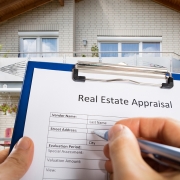For a majority of people, buying a home, or any type of real estate, for that matter, isn’t as easy as finding a great property and simply asking the bank for a loan. Obviously, there’s much more to it – especially in this day and age. Today’s mortgage and lending services demand ingenuity and flexibility to deliver customized solutions tailored to emerging markets.
Believe it or not, one of the fastest-growing markets of home buyers is Millennials. For years, it was assumed that they would turn away from suburban home ownership in favor of big city living and, presumably, renting. However, that prediction hasn’t come true: according to recent analysis by Realtor.com, not only are Millennials “taking over” the U.S. mortgage market, they also hold the largest share of new mortgages by dollar volume.
While their timelines might be a little different than previous generations, the fact is that their attitudes are surprisingly similar – and they’re actually buying more homes than you might think. Home ownership is part of the American dream and, at least for now, it certainly seems as though Millennials aren’t looking to change it anytime soon.
New data reveals that Millennials (aged 19-37, specifically) have outpaced both Gen Xers and Baby Boomers in mortgages, purchasing a larger share of them since early 2017. So how are Millennials able to purchase homes, especially when the prevailing thought is that 1) the cost of living is astronomically high and 2) members of this age group are simply bad at saving money?
According to a recent article on BusinessInsider.com, while Millennials may be buying cheaper homes than Gen Xers and Baby Boomers at a median price of $238,000, they’re putting down less money up front (the average down payment by a millennial homebuyer on a mortgaged home was 8.8% in December 2018). Paired with rising home prices, it’s clear that Millennials are taking on bigger mortgages, as a group, in order to put down roots. Their attitudes toward homeownership remain positive – they’ve just taken longer to get there.
Focus Capital can help the Millennial market “get there,” by offering services specifically tailored to the unique needs of this buyer group. Working alongside our clients, we aim to create alternative lending solutions for a variety of loans including jumbo, super jumbo, non-prime, and others for purchase and refinance transactions.
Want to learn more about how Focus Capital’s alternative lending solutions can help you finance the home of your dreams? Contact us today!
Source:
Business Insider
https://www.businessinsider.com/millennials-taking-over-mortgage-market-homeownership-2019-2











